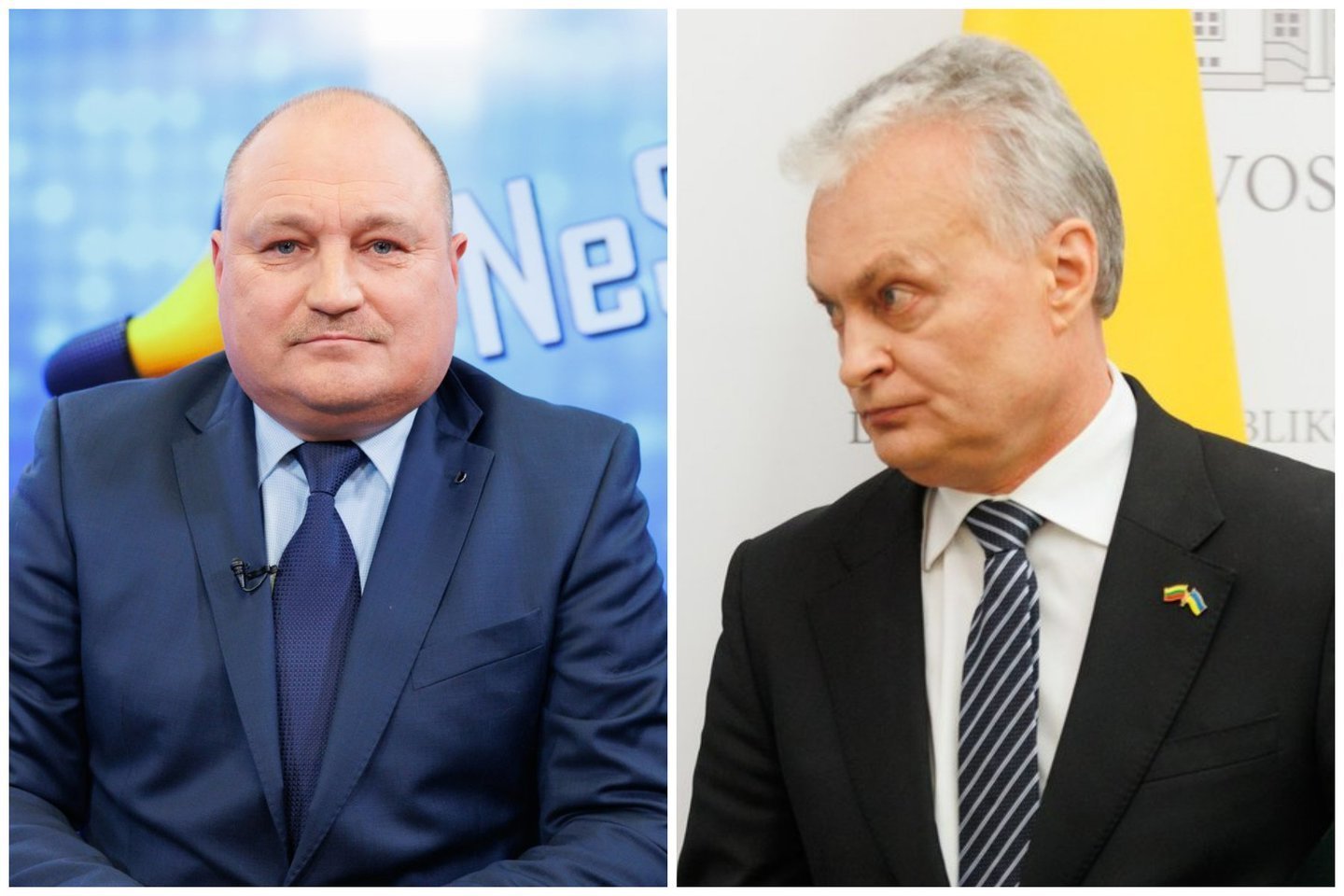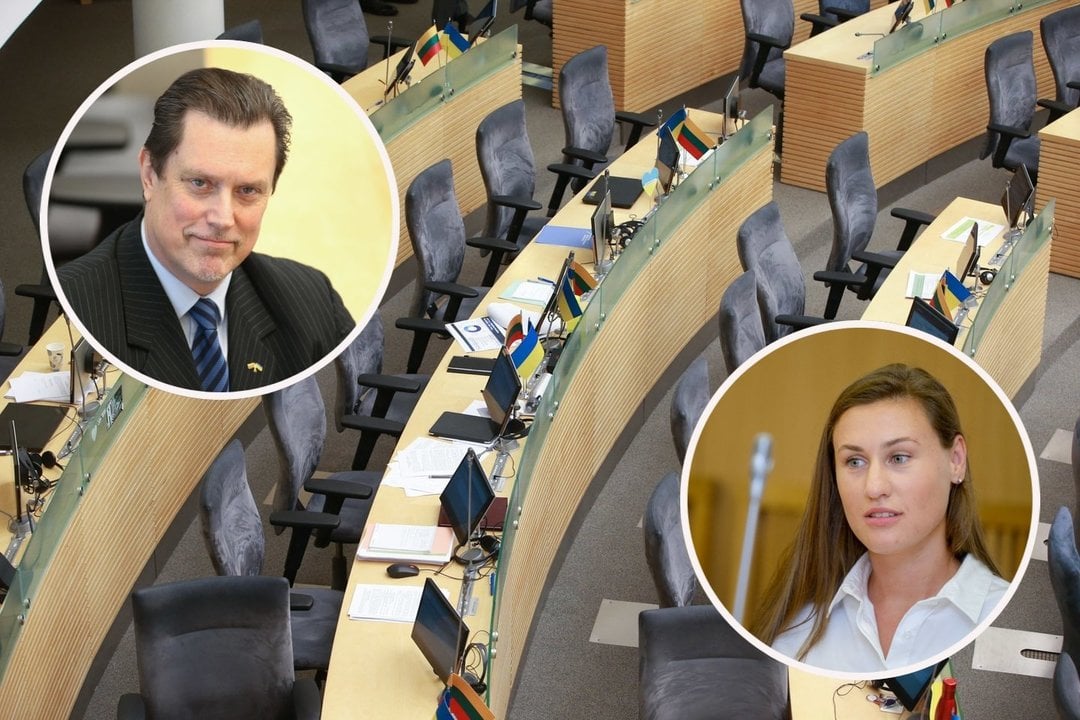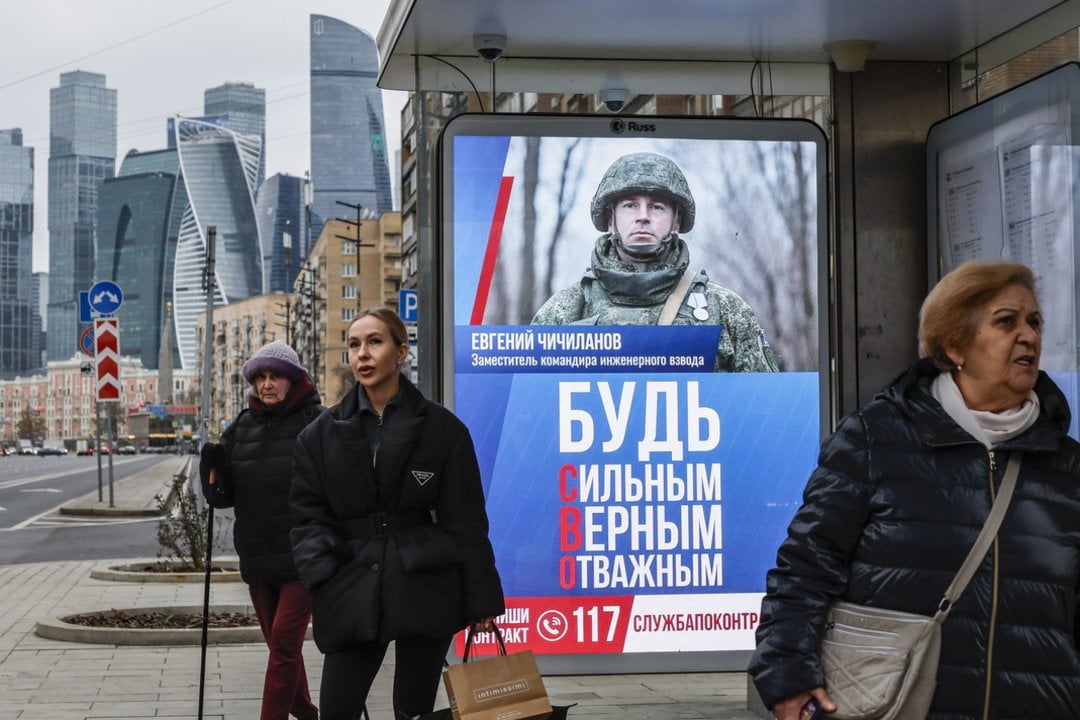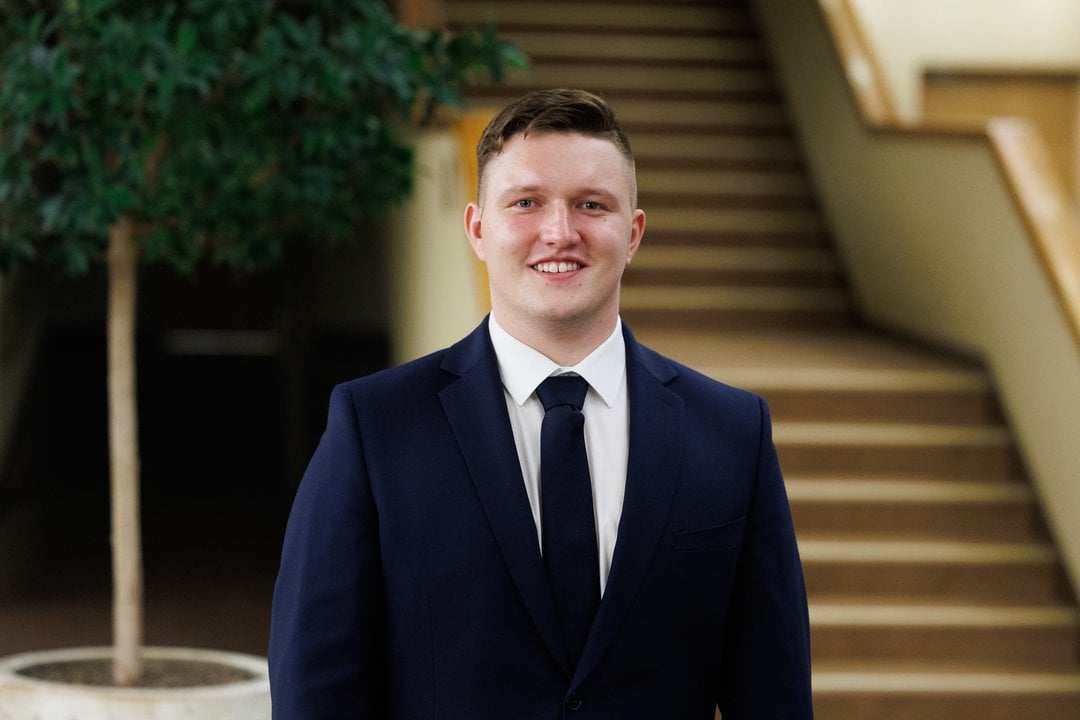One of the recent episodes of this struggle that has reached the public is Gintaras Kryževičius' complaints that the Supreme Administrative Court of Lithuania (LACL), headed by him, is suffocating with a plethora of cases while the President's Office is allegedly not addressing the problem.
The lawyer even recently told the media that he was considering the possibility of appealing to the court because of the situation.
Kryževičius, who is determined to litigate with the Presidency, was only stopped by the war in Ukraine.
But the President of the Supreme Administrative Court did not hide the fact that the cooperation with the President's representatives was complicated and that Nausėda's team did not listen to the arguments of the judges and ignored their suggestions.
Kryževičius also had the impression that direct management had been introduced in the judiciary and that the President's advisors were behaving as if they were representatives of the main shareholder in a state-owned company.
However, the President's Office dismissed such accusations as unfounded.
„According to sources in Lietuvos rytas, the conflict is seen in Nausėda's circle as a desperate attempt by Kryževičius to hold on to the chair of the court.
It is alleged that Kryževičius, who is finishing his term of office, is deliberately trying to provoke as serious a conflict as possible in order to have an excuse for not being chosen for another term because of the criticism he has been expressing in public.
He asked to change the question
Is this the main reason for the dispute that has erupted into the public domain? Or could Nausėda offer the 60-year-old judge another term in office in return for peace of mind?
Jūratė Šovienė, an advisor to the President, was asked about this in the „#NeSpaudai“ programme on „Lietuvos rytas“ TV (by the way, on Wednesday, it was reported that the Prime Minister Ingrida Šimonytė is proposing her candidacy for the position of the chair of the Communications Regulatory Authority. – Ed.) did not even have the opportunity to answer this question.
„Could this question be replaced by another one because it is incorrect and I would not like to hear the answer?“ – G.Kryževičius, who was also present on the programme, quickly interrupted.
According to the National Judicial Administration, in addition to Kryževičius, three other judges are also in the running to head the Supreme Administrative Court.
By the way, after the programme, one of the candidates regretted that he had not applied to the court earlier, as he would no longer have the opportunity to do so if he lost his current position.
He saw a growing problem
The President of the Supreme Administrative Court (SACC) intended to litigate against the President of the Republic of Latvia for not ensuring an efficient judiciary, as provided for in the Treaty on European Union and the Charter of Human Rights.
In other words, Kryževičius accused the President and his representatives of delaying decisions to appoint additional judges to take on cases of illegal migrants. A large number of cases has led to a significant increase in the workload of the LVAT judges, while some other cases have taken more than a year to process.
Kryževičius proposed to transfer two vacant posts of judges from district administrative courts to the Supreme Administrative Court, but the President's Office did not take up the issue, and the search for a solution took too long.
Kryževičius did not call the disagreements in the #NeSpaudai programme a conflict but disagreed with the arguments of the President's representatives that only a systemic restructuring can solve the problems: „Yes, it is necessary, but we cannot wait for restructuring and go downhill.
Change is needed, but it requires political will. Otherwise, we will sink to the bottom.“
They see the situation differently
Meanwhile, the Presidency sees the problems somewhat differently. According to its representatives, the temporary increase in the workload due to illegal migrants should be dealt with by temporary measures, by transferring judges from one court to another, rather than by creating new posts.
Šovienė pointed out that the number of cases coming before the court had been steadily decreasing in recent years and that the appointment of two new judges had further improved the pace of proceedings: „Faced with the crisis of illegal migrants at the end of last year, there was indeed more work.
But this was supplemented by the temporary appointment of six judges from other courts. The court later decided that five was enough.“
The presidential adviser also began to explain that the Supreme Administrative Court has many simple cases involving disputes between convicts over prison conditions but was immediately rebuffed by Kryževičius: „Is that not what you mean by cases?“
The President of the Supreme Administrative Court also attacked Ms Šovienė, saying that her statements about the number of judges and their workload were false: „Your statements are 80 per cent untrue. The changes you refer to are only due to our efforts.
But those efforts will soon cease because we will return to the normal rhythm of work, which, according to your understanding, corresponds to the workload of the Court of Appeal. However, we are working at one-third of its workload.“
Trying to find hooks?
The Seimas is also trying to put a spanner in the President's wheel by delaying consideration of the nomination of Egidijus Šileikis, a former judge of the Constitutional Court (CC), to the Supreme Court (SC), submitted by Nausėda.
A few weeks ago, the issue was abruptly removed from the Seimas' agenda due to the lack of a health certificate and a special services authorisation to work with classified information.
Šovienė claimed on #NeSpaudai that the candidate has all the necessary certificates but admitted that there is a lot of behind-the-scenes intrigue surrounding the discussion of the candidacy of Šileikis in the Parliament.
However, there are attempts to find some kind of hooks and simply prevent the President from exercising his constitutional powers in shaping the judiciary.“
There is more than one version
Šileikis has repeatedly criticised Nausėda, in particular for the rotation of the Constitutional Court judges, which stalled last year.
The former CC judge saw possible violations of the country's fundamental law, for which the President could even be impeached.
However, Šileikis was even more disturbed by the nomination of the former Chancellor of the CC, Ingrida Danėlienė, for the position of judge of the CC Court.
It is believed that Šileikis' highly critical remarks about this candidate infuriated the then President of the CC, Dainius Žalimas. He and Ms Danėlienė were already close at the time, and the couple later married.
The former President of the CC is now one of Šileikis' biggest critics.
According to sources, Žalimas' opinion may be taken into account in return for his efforts to equate the former leader of the conservatives, Vytautas Landsbergis, with a head of state.
Another version circulating behind the scenes of the Seimas is that E.Šileikis, who often has a different opinion and constantly muddies the waters, could be a blight on the Supreme Court.
Moreover, the President's advisor J.Šovienė did not deny that the suspension of the consideration of this nomination might be an attempt to preserve the current order in the Supreme Court, which has been temporarily headed by Sigita Rudėnaitė for two years.
„According to sources in Lietuvos rytas, until all the judges of the Supreme Court have been appointed, the interim President may retain her post, and it is not known whether the President would be willing to submit her nomination to the Seimas again.
The selection process is in doubt
However, it is possible that the most important reason for the disagreement between the presidential team and the ruling party is the current battles in the Seimas over the Judicial Law.
The Presidency is resisting proposals by the judicial elite and the ruling party to change the current system of judicial selection.
Currently, four of the seven members of the Judicial Selection Commission are representatives of the public nominated by the President.
One of them is also appointed as the head of the commission.
However, the ruling party wants to reduce the influence of public figures on the commission to just three representatives.
The courts, which are seeking these changes, would have four representatives on the commission, with the chairman also being appointed from among the judiciary.
There is no doubt that such a transformation would weaken the voice of the public in the selection of judges and would also reduce the influence of the Head of State in this process.




